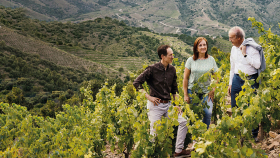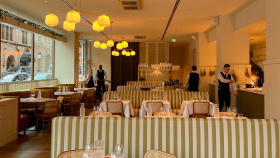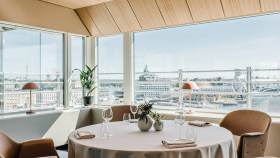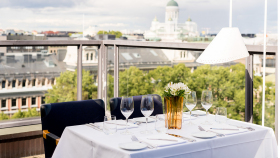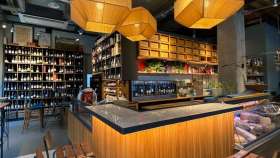Heinrich – focusing on expressive wines with a sense of place
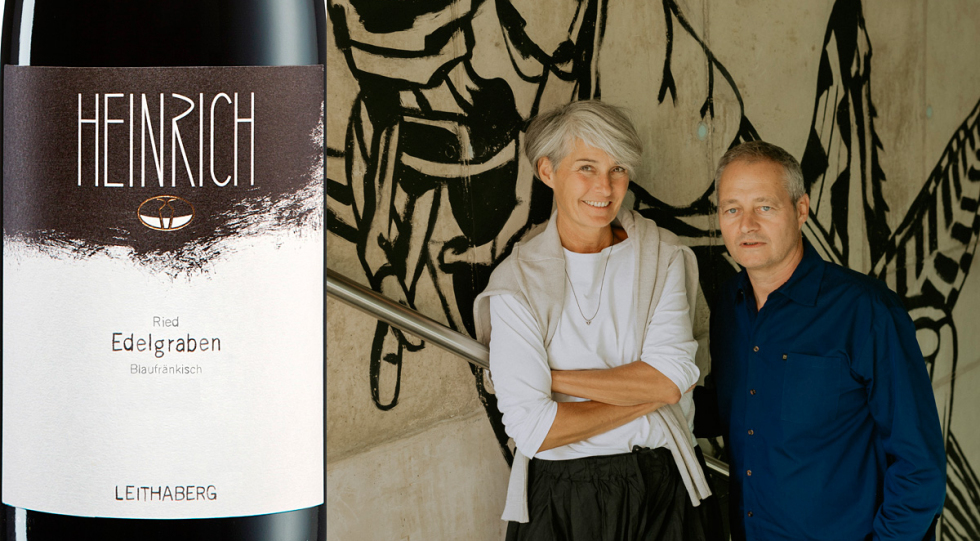
The main goal for Gernot and Heike Heinrich is to produce wines that express a sense of place. And since they converted to biodynamic viticulture in 2006, they feel that their wines show terroir in a much clearer way. "We feel more freshness, more vibrancy, more life in our wines from growing on living soils followed by a natural style of winemaking. Doing less gives more taste," says Gernot Heinrich.
(Partner story with Premium Estates of Austria)
Gernot Heinrich started his own winery in 1990, with just one hectare next to his parents’ winery. He decided to focus on high-quality wines, planted 90% of his vineyards with red grapes, and ended up having a huge international success.
In 2006, Gernot and Heike took an important step in the development of the domain, when they decided to convert to biodynamic viticulture.
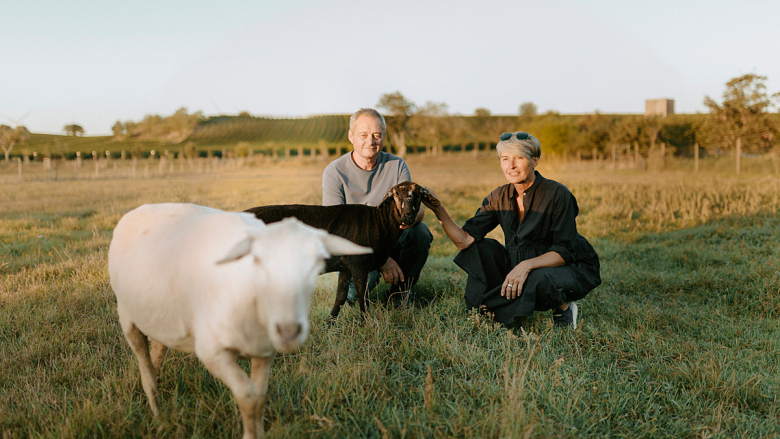
"It was an easy decision, even if it was not easy to understand from the very beginning. All the biodynamic wines we tried were very convincing, we could feel much more spirit and vibrancy in these wines," he says.
"Before 2006 we were sometimes missing this 'spirit or sense of place'- however you want to name it- in our wines and were searching for more individuality. One of the first biodynamic principles we learned was the idea of the farm as an individuality. Each farm is a living being much like a human being with physical, etheric, soul and spirit. By imparting consciousness, we can create a higher quality of the product – maybe the main reason for us – as a winemaker, you are always trying to improve quality and bring more expression into your wines!"
The aim is to create a natural balance in which vines, people, plants and animals act in symbiosis
Heinrich talks about lending "nature and its manifold aspects a voice through our wines” as an important part of their philosophy. Gernot develops:
"Following biodynamic principles means to work with all the natural forces (ego, astral, etheric and mineral), supporting natural cycles (moon, sun) by using biodynamic preparations. The aim is to create a natural balance in which vines, people, plants and animals act in symbiosis and form the decisive elements of a whole."
However, it is not only the transition to biodynamic viticulture that has made the wines tell the truth about their origin more expressively. In 2006, Heinrich also discovered the Leithaberg area on the west side of Lake Neusiedlersee, only 20 km away from their winery in Gols.
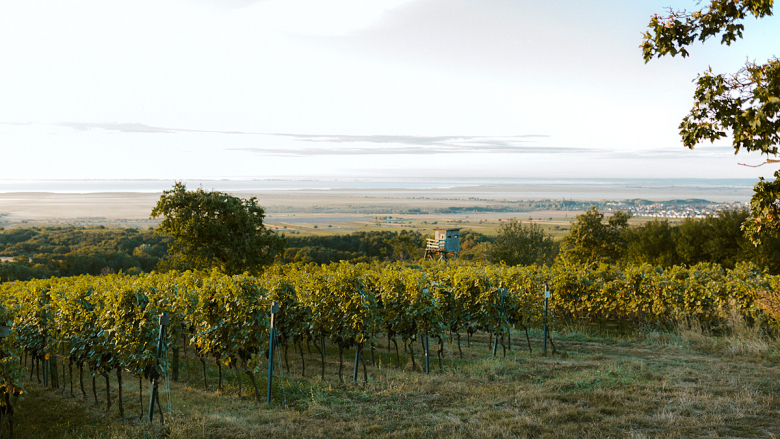
"Leithaberg has different types of soils and we were very excited about growing wine there, on pure limestone in some sites (Alter Berg in Winden) and pure schist in some others (Edelgraben in Breitenbrunn). What I want to say is that not only biodynamics changed the profile of our wines but also the soil, exposition, mesoclimate and of course vinification."
All Heinrich's wines are fermented spontaneously and remain on their lees for an extended period of time, and are bottled without fining or filtration, sometimes without sulfur, or in very low doses.
"The result is vibrant and vital wines that are puristic and strong in character as they reveal the essence of their specific places of origin – livelier wines with lower alcohol and increased freshness," says Gernot, who also describes the common feature in the domain's wines as "vibrating, dancing, lingering, salty, pure, natural, precise, reductive, chalky, authentic with spirit and sense of place – and always with ability to age and improve in the bottle!"
Walking through our vineyards everybody can see, smell, hear and feel the vibrant spirit of life
The transition to biodynamic farming has also made the vines themselves stronger and healthier, says Gernot.
"Biodynamics means that all the parts of the system work well together. These principles lead to such practices as composting, cover cropping, crop rotation, mulching, the use of foliar sprays such as compost teas, poly-cultures, insectaries and non-invasive domestic and wild animal integration. A healthy, fertile (humus is the intelligence of the soil) living soil is strengthening our vines by enhancing the natural immunity and resistance of plants. Walking through our vineyards everybody can see, smell, hear and feel the vibrant spirit of life."
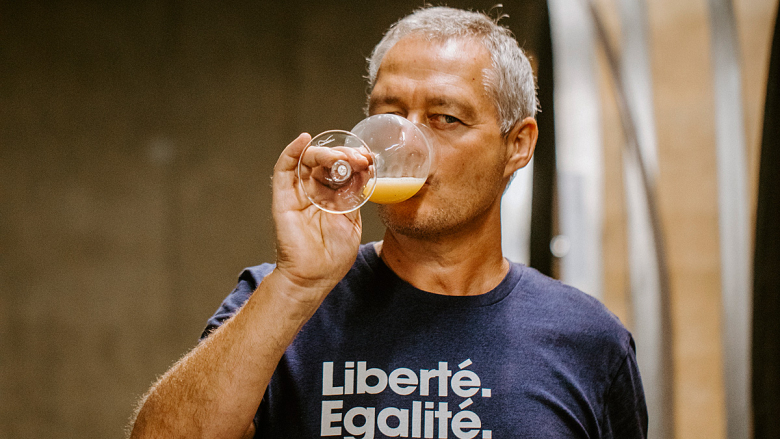
So what is next for Heinrich, what are the main goals for the future?
"We’re constantly trying to improve: our wines, our sustainability goals, reducing, capturing and storing Co2 emissions, improving soil health, including ways to prevent biodiversity loss. In recent years we’ve planted trees and hedges, built nesting boxes for birds, and stone heaps for insects – biodiversity is key. Species extinction might be the even bigger challenge than climate change."
"We believe diversity in the fields, diverse varieties on different soils and microclimates, different vessels and materials for fermentation and ageing pave the way for resiliency and a desirable future. We’ve recently planted some new vineyards like Furmint, Weissburgunder, Savagnin and Welschriesling on schist soils, varieties that we believe are fit for the challenges ahead. We are already excited to watch them grow. There are so many things we can do to tackle climate change and biodiversity loss. We have a responsibility to take action."
Do like the Pros - search 2500+ wine lists







